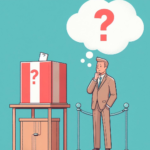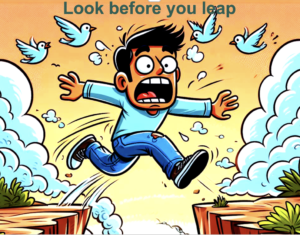F – Fox
This continues the story Back to Selat, followed by D – Darkness. If you haven’t already, you may want to read them first.
———-
Having received information from the Caretaker of Selat about the ever-consuming darkness and Little Red Riding Hood’s disappearance, I decided to go to Red’s grandmother’s house to see if I could find anything else that might help me solve these riddles.
I hadn’t gone far into the woods before I came across Fox, a character who had been very helpful in my last adventure. Fox was the one who managed to leave a clue that helped us discover what had happened to the characters that were missing at that time. (https://www.hdhstory.net/Storyblog/?p=3504)
Instead of approaching and greeting me, Fox turned and ran away. Curious about why Fox would do that, I changed my direction and attempted to follow him.
This turned out not to be an easy task. You have to remember it was dark, and my flashlight was the only light I had to go by. Rather than look ahead and chase Fox, I chose to go slowly and follow his footprints on the ground, using my flashlight to guide me.
The ground was soft enough to follow Fox’s trail; the only issue was that I was being diverted from Granny’s house.
As I pursued Fox, I wondered what would make him run away from me like that. He must have recognized me, even in the dim light. Something was amiss.
Fox either got too tired or gave up because I eventually found him sitting quietly on a boulder right in front of a fork in our path.
“Hey Fox, what’s going on? Why are you running from me?” I asked.
He replied in his know-it-all clever fox voice, “Me? Running from you? I was just getting some exercise and wondered why you were chasing me?”
Somehow, that didn’t sound right. However, I went with it. “I was going to Granny’s house when I saw you and thought I would ask you some questions.”
“Questions?” he replied, “What could you possibly want to know from me? My stories are very clear.”
“Haven’t you been curious about all this darkness? Did you know that Little Red Riding Hood is missing?
“Come to think about it, I was a bit curious about the darkness. I assumed it must be some sort of eclipse or something like that. As for Red, I didn’t know she was missing.”
I knew this was no eclipse; he should’ve also known that. “Now that you have had time to think about it, what do you think might have happened?” I asked.
Fox’s response was not very smart for an animal known for its cleverness. “This is Selat. Maybe the Sun just decided to take a rest. I’m sure it will come back.”
I suggested, “What about Necroma? Do you think she might be back and the cause of any of this?”
“Necroma…Necroma, now that name does sound familiar,” he said, looking thoughtful. “You might want to look further down this path’s left fork. I think you might find answers there. I would go with you, but I must maintain my exercise regime. Good luck.” And with that, Fox ran back along the path we had just come from.
Fox had been a great help before, and I should trust him. But why would he withhold information from me? Without thinking or wasting any more time, I chose to take his advice and started down the path to the left.
Though this path was taking me further away from Granny’s house, with any luck, I would find some answers that might help me get closer to the truth.
Unfortunately, this time, my instincts were wrong.
———-
To be continued in J – Jack
















